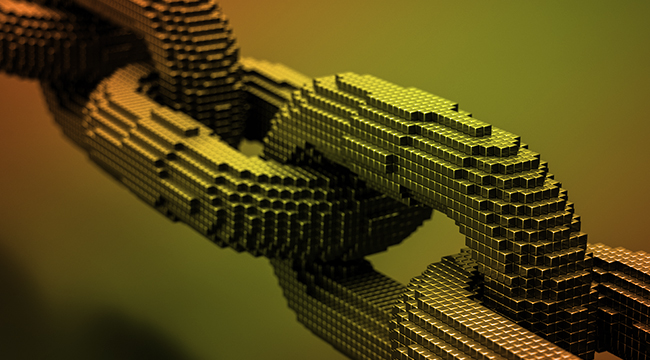
The tech industry is loaded with buzzwords. This app disrupts this, this program gamifies that. So when you hear about the “blockchain” you might assume that it’s similar jargon. Another hot term which no one really understands. But though the latter part of that sentence might be true, the word “blockchain” is indeed “a thing.” In fact, it’s one of the key technologies underlying Bitcoin.
Blockchain is based on a simple idea: Creating an online ledger — shared with everyone who uses a program — that logs where things go and how they’re used. It’s totally public and open, and the implications of the technology are fascinating.
- Blockchains are the tokens of trust in the cryptocurrency world: A blockchain is basically a tracking system. From the moment a Bitcoin or a Litecoin or any cryptocurrency is mined, it’s entered on the blockchain. Whenever it’s bought and sold, divvied up into bits, or anything else happens to it, it’s entered on the ledger. And everybody involved in the currency has a copy of this ledger, so you can’t pretend you have someone else’s coin; they can just pull out the ledger and see where it really is. For any trade to happen, in a cryptocurrency, the ledgers have to match exactly.
- In other words, blockchains let you swap things directly with confidence: Think about it: When you use money, there’s usually an institution in the middle, a government issuing a currency, a bank doing the accounting and issuing a debit card, and so on. Blockchains take out the institution in the middle, and automate all the stuff they normally do, like checking for forgeries and ensuring the buyer and the seller are on the up-and-up. It’s not perfect, but it is useful.
- Blockchains probably aren’t replacing your bank, but that doesn’t mean they aren’t important: It doesn’t really take a lot to see the value in having not just a ledger at the bank, but a ledger with a lot of backups which anybody can check. For example, a company called Chronicled uses blockchain on legal documents, so everybody involved with a document can know where it went, who it went to, and what time. That’s useful for lawyers, for investigators, and for anybody else who needs that knowledge, especially in an era of email. Shipping giant Maersk and IBM have formed a blockchain company to track each shipping container and help prevent smuggling by creating a digital trail that’s harder to forge. Police evidence systems may use blockchain to track evidence as it moves from place to place.
- In the long run, everything that needs to be tracked may have blockchain: For example, if there’s a blockchain attached to your photos, you can track any photo you post and set permissions for it. Insurers could use a blockchain to track a car, and ensure that a totalled vehicle isn’t being sold as if nothing’s wrong with it. Really, anything you can think of that you, or any group of people, want to track the history of, especially if it’s digital, there’s probably somebody trying to tie a blockchain to it right now
- Still, it’s not a magic bullet: It’s one thing to know exactly where something went and who did what with it, but that’s as far as blockchains go. Being able to prove somebody posted your nude selfies without permission, and major websites blocking the post because the blockchains don’t match, won’t matter much if they can find a site that doesn’t care. Similarly, blockchains are only as strong as the password that logs into the program that uses them. Plenty of Bitcoins have been stolen by hackers logging in and doing business pretending to be the user, or just putting a gun to somebody’s head and demanding they transfer the Bitcoin.
In other words, anybody telling you blockchain technology will change the world overnight is overhyping it. And there are plenty of bad ideas too, like an idea that restaurant waitstaff should have every interaction with a customer follow them for their entire lives. But it’s intriguing technology, and it’s likely we’re going to see more, and more interesting, uses for it. Especially as blockchain breaks away from cryptocurrency to become its own thing.
